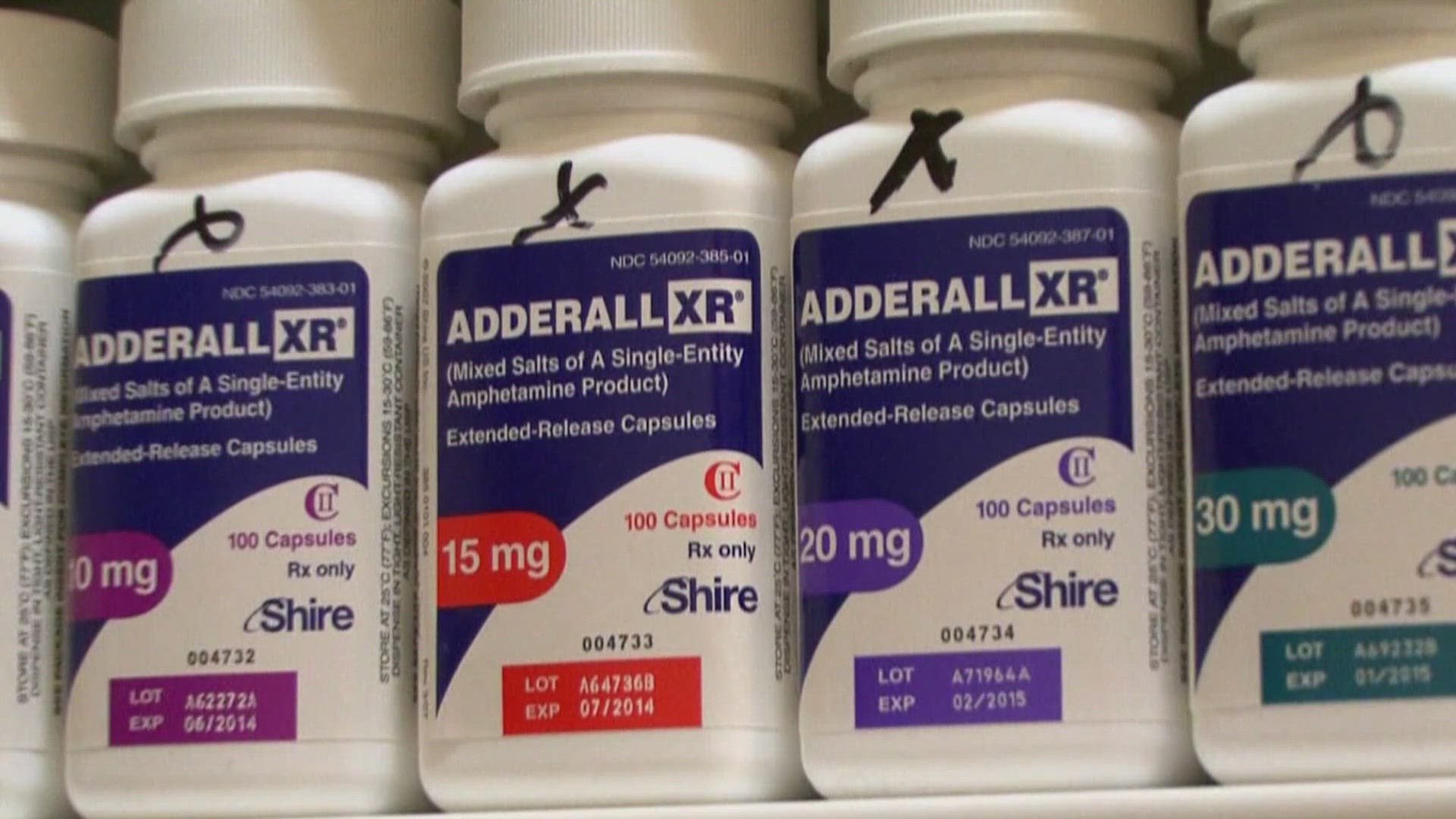COLORADO, USA — People with ADHD said they've been having trouble getting the medication they need all year long and it's forced come to drive hours in hopes of picking up the prescriptions they need for their ADHD.
Often times, patients walked away empty-handed. People dealing with medication shortage want to see the supply and demand problem solved.
“When you don't have the medication, you really get caught in this downward spiral,” said Jessica Urgo, who suffers from ADHD and lives in Denver.
In the decades she's had ADHD, Urgo has never faced an issue getting her medication filled, until about a year ago. She went to pick up her Adderall from the pharmacy like always, only to leave empty-handed.
“It was like, OK that's a little bit weird, but like, it's not the end of the world,” Urgo said. “The pharmacists at one point seemed to feel bad about it, where they would say ‘I am really sorry, you can try this, you can try that.’”
This year, that became the norm.
“Then that started spiraling where it wasn't ready in a few days, and then it wouldn't be ready in another week,” Urgo said. “They just sort of shrug they say ‘this is how it’s been and we just don’t know.’”
Urgo’s husband has ADHD too. At one point, they got desperate.
“We ended up driving two hours because it had been three weeks since we hadn't gotten anything,” Urgo said.
They have been rationing what little they do have.
“I have a big presentation on this day, so I absolutely need it, and Saturday I am going to a party with a lot of people and I don't want to come off as talking too much or missing social cues,” Urgo said. “But I have pick.”
Urgo said the medication is just one piece of the puzzle.
“You need to come at it from all these different angels,” Urgo said. “You need therapy, and willing to work on it yourself, and you need meds. And without those three pieces, it can really make it difficult.”
Justin Vandenberg is the pharmacy business services manager at Denver Health.
“It’s scary, in earlier years I worked in the retail sector, and seeing patients look on their face and saying ‘Sorry we are out of it, I don’t know when we are going to get some in,’ and having that uncertainty really leaves them in a bind,” Vandenberg said.
Vandenberg said the Drug Enforcement Administration, or DEA, recognizes Adderall as a controlled substance.
“It is in the same category as fentanyl oxycodone. It's put in a lot more checks and balances and one of them is that the DEA sets an annual quota of how much can be made, and that’s looked on previous trends from previous years,” Vandenberg said. “And what it's boiling down to is a supply and demand issue. We have a lot more people that are identifying as having ADHD, and that volume is going up. However, you’re looking at these past trends of how much can be produced, and it’s not matching up with that.”
Vandenberg said people have to pick-up exactly what they’re prescribed.
“Let’s say they’re on a five milligrams, but we have ten milligrams, we can’t just switch that because of the prescription classification,” Vandenberg said. “But we can call that doctor, and they can get a new prescription for the tens, and cut that in half. It’s about trying to be a little more creative to help that patient.”
Vandenberg said there is work happening behind the scenes to help people.
“At the congressional level, there are discussions going on about other drug shortages, so I would hope there are enough people speaking up that there are going to be some changes,” Vandenberg said. “Now what that change needs to be, that’s to be determined.”
Urgo wants to see the problem solved. “I am told I am so smart, I know I am smart, but it feels so debilitating to be unable to do those things that you want to do,” Urgo said.
Urgo hoped other people fighting the same battle will give themselves a little grace.
“You just have to be nicer, and kinder to yourself, and you have to be a good advocate for yourself,” Urgo said.
“Having the patient talk to their pharmacist and provider, and having that open conversation,” said Vandenberg. “That’s really what, I can speak for myself, drives that passion and wanting to go that next day and that next day, is when you see these stories. One, it breaks your heart, but when you can turn that around and put that smile on that patient’s face, that’s really what I am here for.”
“If I could have my medication every day, I would feel happier, I would be able to do more,” Urgo said.
SUGGESTED VIDEOS: Latest from 9NEWS

